
12 Ways to Shift to a Consumption-Based IT Model
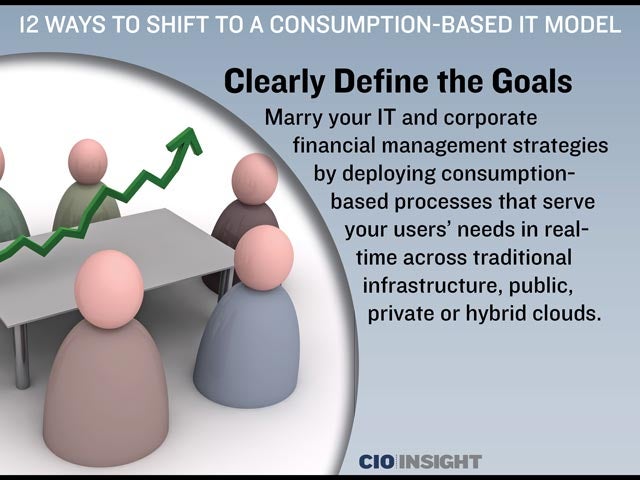 Clearly Define the Goals
Clearly Define the Goals
Marry your IT and corporate financial management strategies by deploying consumption-based processes that serve your users’ needs in real-time across traditional infrastructure, public, private or hybrid clouds.
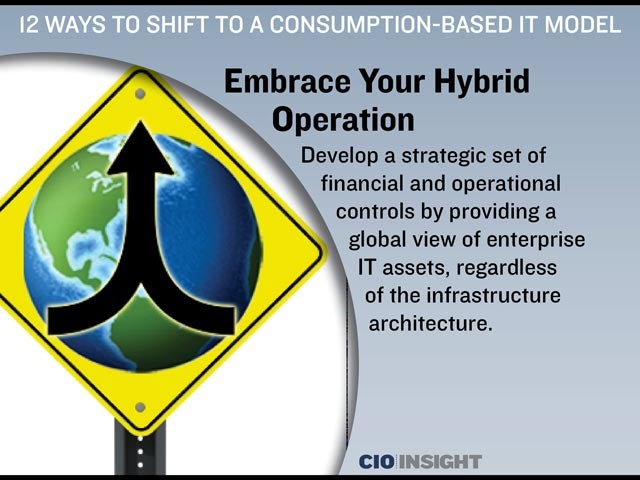 Embrace Your Hybrid Operation
Embrace Your Hybrid Operation
Develop a strategic set of financial and operational controls by providing a global view of enterprise IT assets, regardless of the infrastructure architecture.
 Define the Services
Define the Services
Use flexible IT planning and management software to identify details of usage. Bundle usage into IT services offered in a business-friendly catalog. Improve resource visibility and selection by line-of-business, as well as servers, storage, networking, CPUs, apps, desktops, etc.
 Capture Consumption Data
Capture Consumption Data
Capture consumption data in a timely manner using consistent, repeatable processes that streamline invoicing and revenue recognition. Invest in proven data collection and reporting software designed for consumption-based IT.
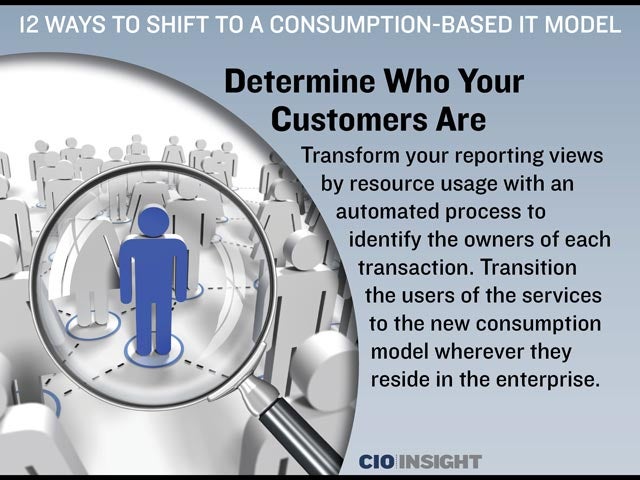 Determine Who Your Customers Are
Determine Who Your Customers Are
Transform your reporting views by resource usage with an automated process to identify the owners of each transaction. Transition the users of the services to the new consumption model wherever they reside in the enterprise.
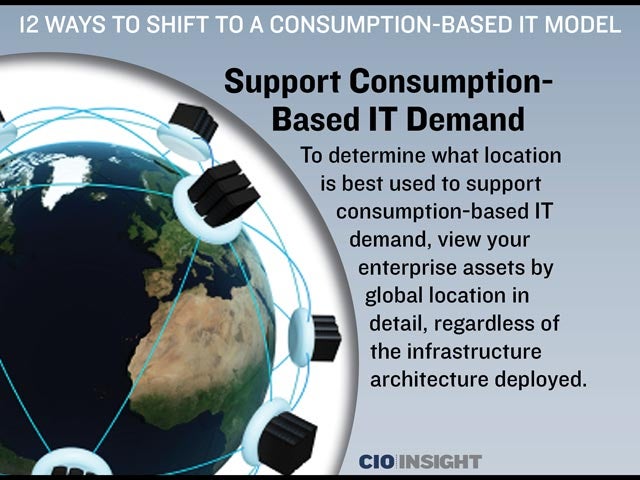 Support Consumption-Based IT Demand
Support Consumption-Based IT Demand
To determine what location is best used to support consumption-based IT demand, view your enterprise assets by global location in detail, regardless of the infrastructure architecture deployed.
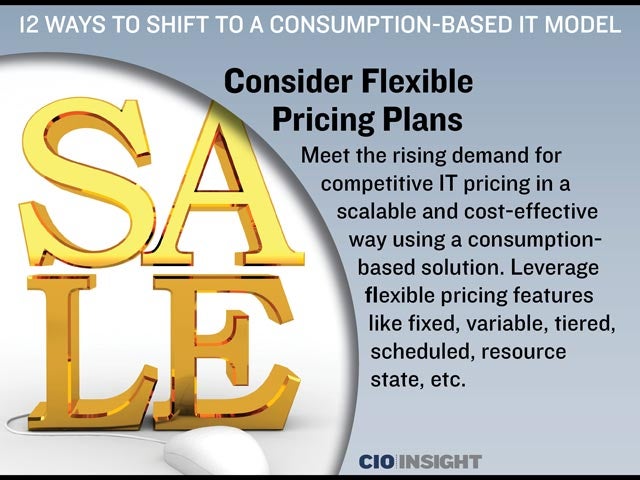 Consider Flexible Pricing Plans
Consider Flexible Pricing Plans
Meet the rising demand for competitive IT pricing in a scalable and cost-effective way using a consumption-based solution. Leverage flexible pricing features like fixed, variable, tiered, scheduled, resource state, etc.
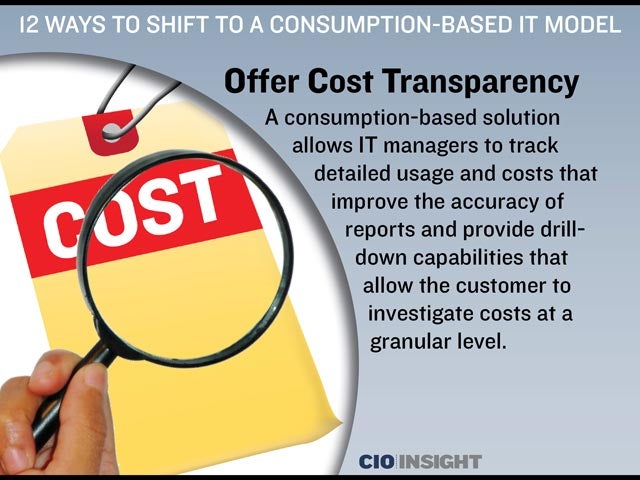 Offer Cost Transparency
Offer Cost Transparency
A consumption-based solution allows IT managers to track detailed usage and costs that improve the accuracy of reports and provide drill-down capabilities that allow the customer to investigate costs at a granular level.
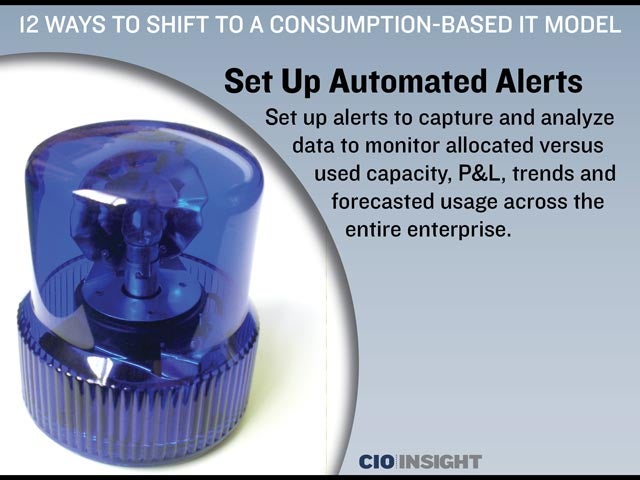 Set Up Automated Alerts
Set Up Automated Alerts
Set up alerts to capture and analyze data to monitor allocated versus used capacity, P&L, trends and forecasted usage across the entire enterprise.
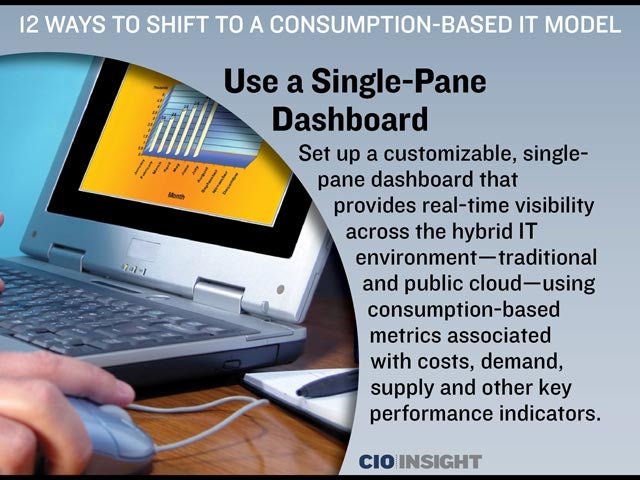 Use a Single-Pane Dashboard
Use a Single-Pane Dashboard
Set up a customizable, single-pane dashboard that provides real-time visibility across the hybrid IT environment—traditional and public cloud—using consumption-based metrics associated with costs, demand, supply and other key performance indicators.
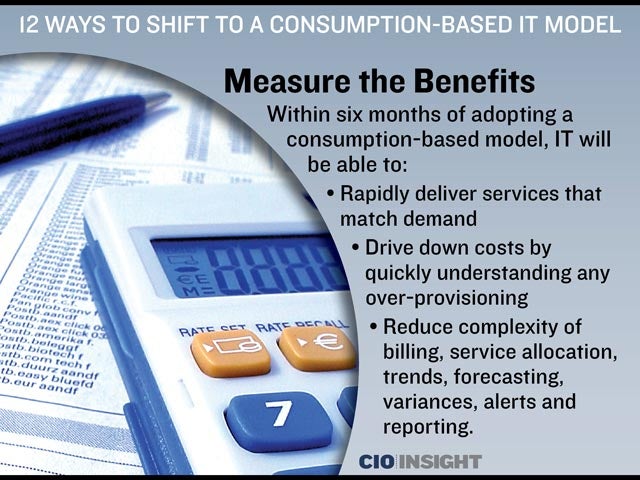 Measure the Benefits
Measure the Benefits
Within six months of adopting a consumption-based model, IT will be able to: Rapidly deliver services that match demand. Drive down costs by quickly understanding any over-provisioning. Reduce complexity of billing, service allocation, trends, forecasting, variances, alerts and reporting.
 More Benefits
More Benefits
Deliver the right service at the right time and reduce shadow IT. Be viewed as a trusted advisor for technology decisions across the enterprise. Act as a broker of internal and outsourced services, and optimize costs.